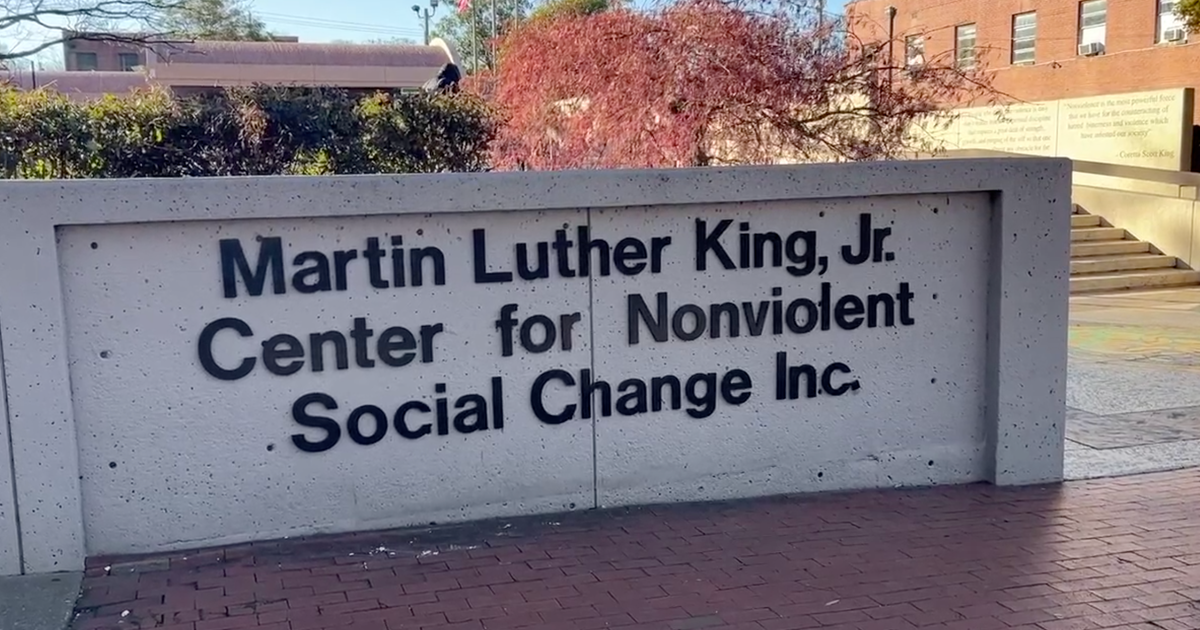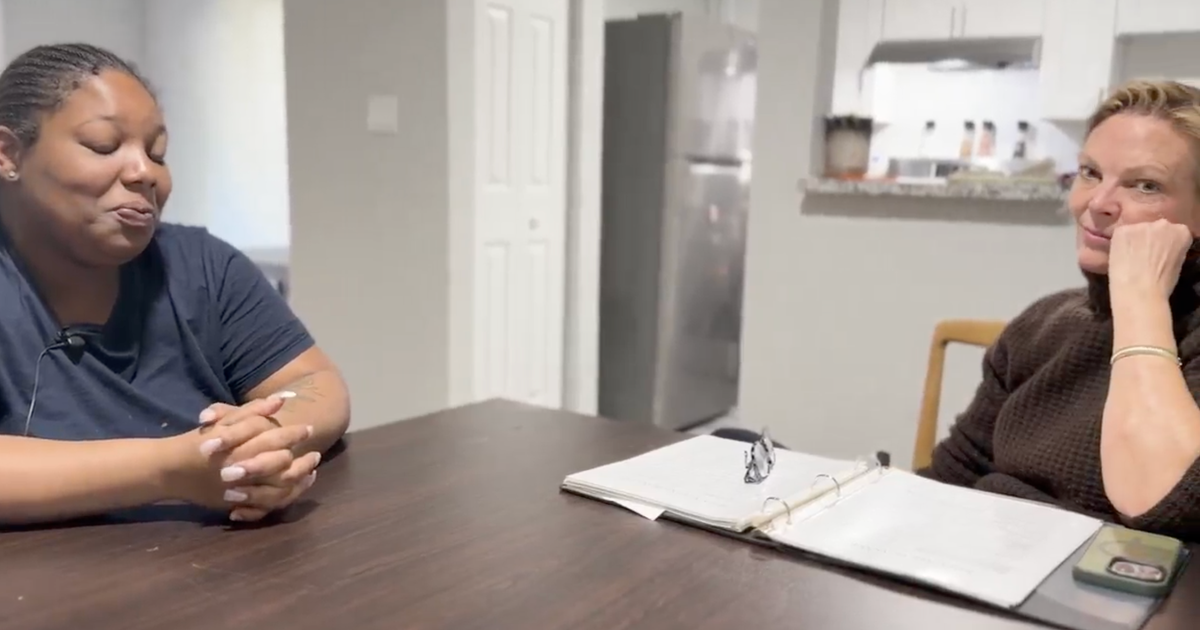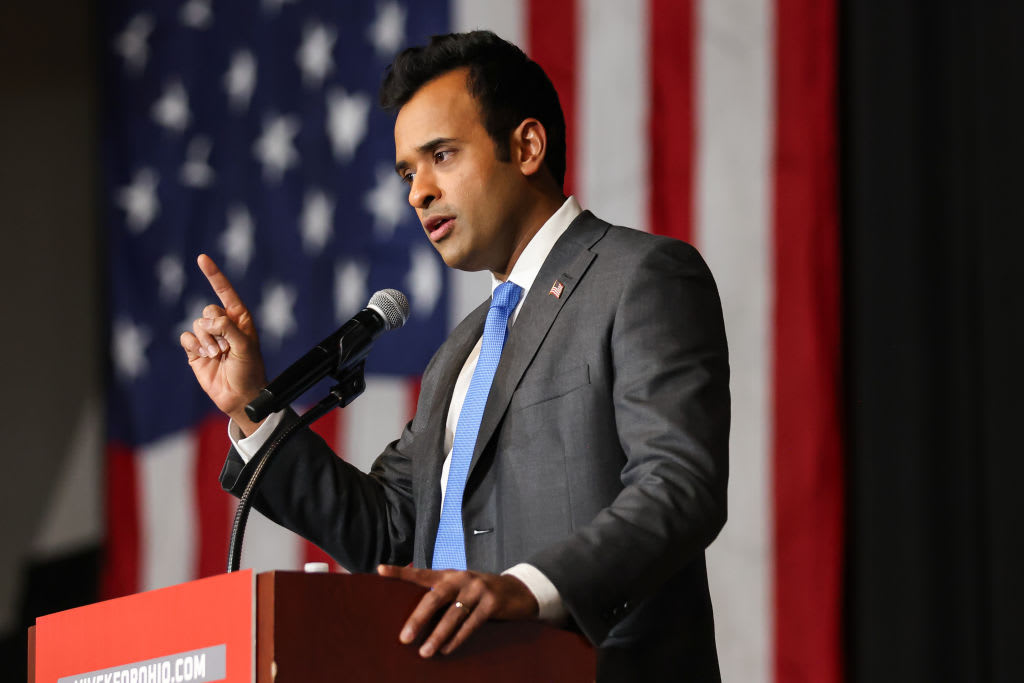Georgia governor bans cities from ordering people to wear face masks
Georgia's Governor Brian Kemp is explicitly banning Georgia's cities and counties from ordering people to wear masks in public places. He voided orders on Wednesday that at least 15 local governments across the state had adopted even though Kemp had earlier said cities and counties had no power to order masks during the coronavirus pandemic.
An increasing number of other states order residents to wear masks in public, including Alabama, which announced such a ban Wednesday.
The Republican governor has instead been trying to encourage voluntary mask wearing, including telling fans that reduced infections from mask-wearing would make college football season possible.
Kemp's move is likely to infuriate local officials in communities that had acted, including Atlanta, Augusta, Savannah, Rome and the governor's hometown of Athens-Clarke County. Overall, mask orders by Wednesday were covering 1.4 million of Georgia's more than 10 million residents.
Savannah Mayor Van Johnson was the first local official to defy Kemp and order masks, and had said police would start writing $500 citations to businesses that didn't enforce the law.
"It is officially official. Governor Kemp does not give a damn about us," Johnson wrote on Twitter Wednesday night. "Every man and woman for himself/herself. Ignore the science and survive the best you can."
Kemp's new order also bans local governments from requiring masks on public property, which void requirements that some governments have imposed for citizens to wear masks inside city and county buildings.
Kemp was among the first governors to ease earlier restrictions, and while infections declined for weeks afterwards, they began to rise in June. Wednesday's numbers showed nearly 2,800 people hospitalized statewide with the COVID-19 respiratory illness, the highest on record and a number that's nearly doubled since the beginning of the month. The state reports 84% of hospitals' available critical beds are in use, although some hospitals say they have opened up more space and have more room.
Georgia overall had nearly 128,000 confirmed infections and nearly 3,100 deaths overall as of Wednesday, although experts say many more people get the illness but are never tested. For most people, the new coronavirus causes mild or moderate symptoms. Most recover, but some can become severely ill or die.
Local officials and Democrats had argued cities and counties had the power to move ahead because Kemp hadn't specifically banned mask orders. His orders barred local governments from enacting any coronavirus restrictions beyond his orders and he called the local mask mandates "legally unenforceable."
"It is increasingly clear from medical and scientific data that droplet and aerosol transmission of COVID-19 are an enormous community risk, so I made the decision to supplement the governor's order with a local mask requirement to provide for greater community safety," Kelly Girtz, mayor of the Athens-Clarke County unified government, said in an email.
The back-and-forth comes as rising hospitalizations have the state seeking new hospital beds to handle the record-setting number of people admitted with the virus. Kemp's administration on Tuesday signed a deal with Piedmont Healthcare, one of four large hospital systems in the Atlanta area, to open 62 beds in a new tower at the system's main Atlanta hospital. The state is providing nurses to staff the beds off a contract with a private staffing company. A Kemp spokesperson on Wednesday could not immediately say how much the state was paying Piedmont or how long the deal would last.
The Republican governor previously announced plans to reopen an overflow hospital at the mammoth Georgia World Congress Center in downtown Atlanta.
The rising COVID-19 case numbers prompted Atlanta Mayor Keisha Lance Bottoms to order the city to reverse its reopening plan and return to Phase 1 last week. "Georgia reopened in a reckless manner and the people of our city and state are suffering the consequences," Bottoms said.
The trend of deaths had hit a low in Georgia on July 9, when the state averaged only 12 newly reported deaths a day over the previous week. Newly reported deaths sometimes happen weeks earlier. But the trend of deaths has since been rising, following upward trends in cases and hospitalizations that began in early June. Georgia is now averaging 24 deaths over the past week, the highest level in nearly four weeks.
Kemp on Wednesday extended some parts of his executive orders governing the state's response to the pandemic until July 31. It extends the ban on gatherings of more than 50 people, renews rules about how businesses can operate and orders nursing home residents, senior home residents and other people with medical conditions to shelter in place. The overall state of emergency will run through at least August 11.
Other governments are taking steps on their own property. Macon-Bibb County on Tuesday closed park pavilions, sports fields, basketball courts, and playgrounds to reduce virus transmission.
Kemp said Wednesday that the federal government has sent 32,600 vials of the antiviral drug remdesivir, which has been shown to aid people with infections. Kemp said that was enough to treat up to 5,400 patients. The governor said that from now on, hospitals will generally be able to buy the drug directly, although smaller federal shipments to Georgia will continue.





